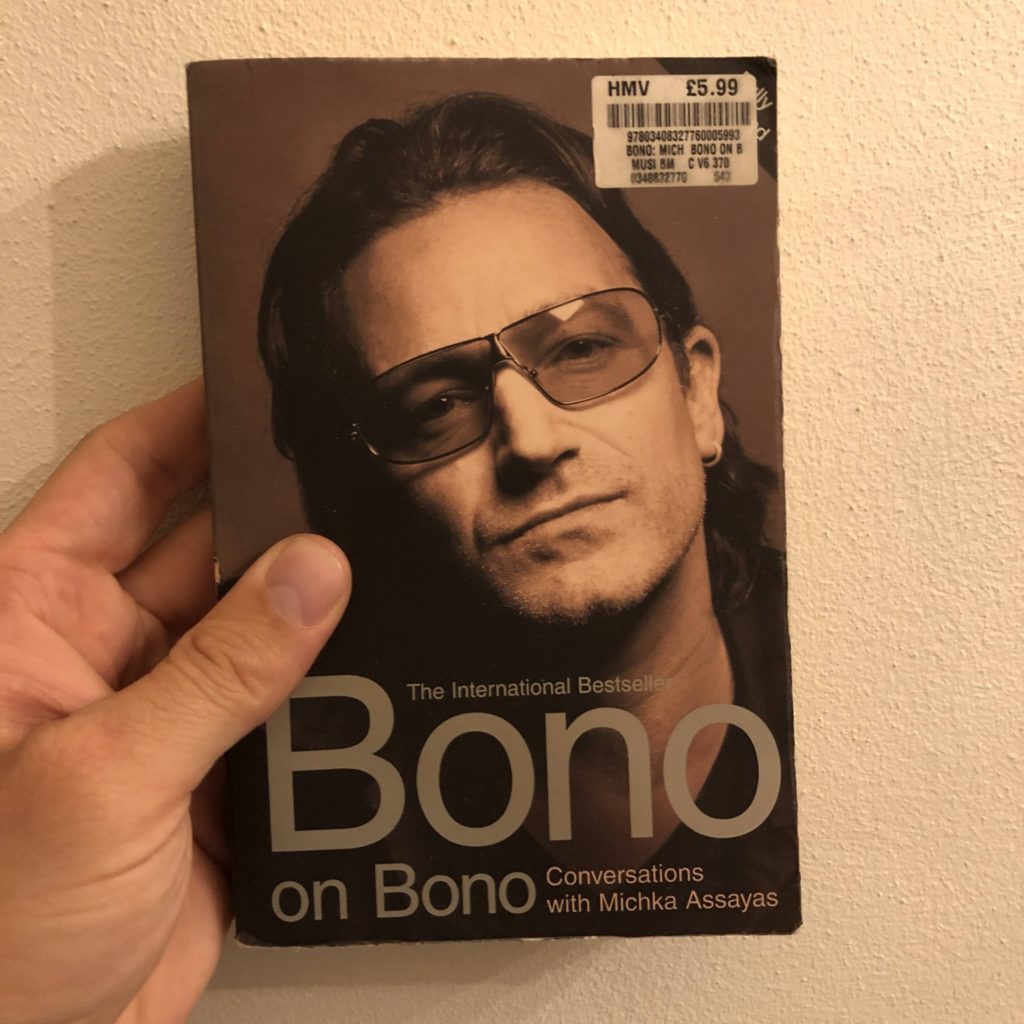I have a soft spot for Bono. The megalomaniac lead singer of probably the world’s most commercial band (“the only band with their own iPod”). The Irish humanitarian multi-millionaire. Yes, I get all the criticism. Still, few singers can belt it out like Bono can. And I will forever stand by that.
On May 10th this year, Bono turned 60. So I thought it would be a good time to (re)read his 2005 biography.
I got this book, with a bunch of others, in 2006 at an HMV in Manchester. Good times.

It sort of took me back a bit when I realised that most of this book was written in 2003 and 2004, when Bono was only a couple years older than I am now😲. By then he was of course already a very well established and very famous person. The book is written somewhere between two U2 albums: All That You Can’t Leave Behind and How To Dismantle An Atomic Bomb. So it finds Bono in a sort of musical lull, but with VERY high energy on issues like humanitarian aid en debt-relief causes.
Banter
The book is written as a dialogue, which is a very interesting concept! But I don’t think the chemistry between this Irishman and Frenchman works all the time. Or, I just don’t get their banter, because it’s cringy at times and the questions often go in directions I don’t want them to go (I would have asked different things!). It is also strange that there seems to be an effort to put everything down verbatim (with inserts like “Bono laughs” or “pauses reflectively”) while clearly this book and the interviews have been edited. Which is fine! But why the emphasis on this fake realness?
I am also not sure of the reason for this biography, other than to emphasize Bono’s humanitarian efforts. This biography therefore also suffers what so many biographies suffer from: high on current events, low on what actually made the subject into the person they are now (Neil Young’s biography is the worst example of this).
Granted, Bono is very vulnerable in discussing his youth and parents. This was probably the most revealing and most interesting part. Also because these are few of the actual biographical parts of this biography. I also enjoyed how Bono talked about his religious beliefs. You don’t always get this from the music. But the tête-à-têtes Bono had with Bush and Clinton were probably very on topic in 2005, but they seem like something from another lifetime in 2020 and less relevant.
So I get this is not a book about U2 but about Bono, but I would have expected a little bit more stories about music. And this is not like Keith Richards or Bruce Springsteen‘s tremendous biographies, which were written when they were much older and are much more about the music.
So now that I am done complaining, I could just say that this book is less of a book than more of a collection of what could be magazine interviews, but HOWEVER: I still liked it!
I mean, it’s about Bono. And he definitively is one of a kind. How could you not like it!